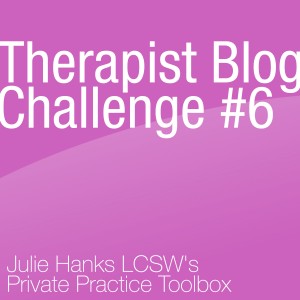
Commenting on expert YouTube videos can make for a quick and meaningful blog post that lets potential clients know more about you and provides them with helpful information.
While your blog posts may be a way of sharing your unique perspective, you can use existing content as a springboard for meaningful content. Blog posts don't have to be entirely original material. One way to do that is to share your favorite YouTube video with your blog readers and potential clients.
Many experts, researchers, and psychology gurus have YouTube videos or channels. Find one that speaks to you and is relevant to your ideal client. Summarize why the video speaks to you and how the information will be helpful to your ideal client. Then embed their video on your own blog post. Easy, right?
How to embed a YouTube video into your blog post
- Underneath the YouTube video there are several links.
- Click on the "share" link.
- Then click on "embed" option.
- A box will open that has the code needed to embed the video on your site. Copy this code and paste it into your blog post.
- If you're totally lost here then contact your webmaster for help.
Here are a few of my favorite videos. Feel free to use these or find your own.
Additional reminders about the 2013 blog challenge
- Write and post your blog article in the next 2 weeks. If you miss the deadline or you read this article months later, that’s OK too.
- Post a link for this blog challenge in the comment section of this blog post.
- Read, comment, and share other therapist’s articles.
- Tweet your post using hashtag #therapistblog and tag @julie_hanks so I can retweet it.
- Pin it on the challenge Pinterest Board. I’ve invited everyone who posted a comment on the initial blog challenge post as collaborators so you can pin onto the group board.
- Spread the word and invite mental health colleagues to join the challenge. Articles can be added anytime throughout the year.
- Write no more than 600 words, make it easy to read, use a conversational tone, and gear your articles toward your ideal client (not other professionals).
- The goal of a professional blog is to provide value to your website visitors, help them get to know your professional perspective, increase traffic to your private practice website, and build your practice.


As healers, we genuinely like to do our work. Guiding clients through the therapy process and seeing them make progress is why we do what we do. But if you're in private practice, you know there's a lot going on in the back end and that it's crucial to run an efficient and organized business.